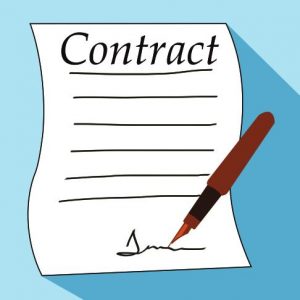Enhanced Diligence for Turnkey Investing
By Bruce Kellogg
What About Enhanced Diligence?
In the beginning, commercial real estate brokers invented the term “due diligence”. Lacking a specific definition, it basically means, “Check it out”, when making a real estate purchase. Nowadays, the term has received wider use in home purchasing, turnkeys, syndications, and more, but its application still has no formula. This article aims to correct that for turnkey investing with what can be called Enhanced Diligence.
Initial Philosophy
When an investor purchases a turnkey property in a distant location from a rehabber who installs a tenant and arranges for property management, the investor is buying a property. The rehabber might move on, or go bust. The manager might prove ineffective. The tenant might move out. What is surely left is the property. The investor owns it. This is why Enhanced Diligence is so important. It has got to be done!
Exterior Issues
Common sense suggests purchasing a property with a hardy exterior, especially in areas with harsh winters or hot, dry temperatures. Basically, this means the less wood, the better. Think of tile or concrete roofs, brick/block/stone/vinyl exterior walls, and vinyl windows. Arrange these for your purchase as best you can.
Repairs “Done With Permits”

Most turnkey projects with substantial rehab work will involve the need for building permits. Common examples include roof replacement, gas line routing, electrical wiring and service upgrades, and moving “load-bearing” walls. So what? Turnkey operators will say that their repairs were “done with permits”, but this doesn’t say everything. A turnkey operator might “pull permits” for some repairs, but not others, usually in order to save costs. Or, they might purchase permits at the Building Department, but not call for the required inspections, and not have the permit “finaled” (i.e., all signed off). For example, paying a $22.00/hour “handyman” to reroute a gas line is much cheaper than paying a $60.00+/hour licensed plumber to do the job. This matters because people could get hurt by improper work, and insurance claims will be justifiably denied if this is discovered.
Enhanced Diligence by investors involves obtaining copies of all permits from the turnkey operator, then comparing them to the Building Department file for the property. Most departments have this online now or, if not, permits can be requested by mail and enclosing the required fee. This is public information.
If any of this does not go smoothly, or check out, take a hike.
Obtaining Inspections

In principle, the author recommends obtaining a “property inspection” report by a licensed contractor even if the turnkey operator discourages the idea. In fact, that might be even more reason to order one! The cost is usually $450-600, depending upon the size and complexity of the property being inspected. Look especially for two kinds of findings: 1) building code violations and, 2) health and safety hazards found. An example would be exposed electrical wiring. It is important to negotiate corrections to all of these and, if not satisfied, again, take a hike.
Now, some cities do inspections before rehab properties can be transferred. The investor needs to decide whether this is sufficient. One of the author’s consulting clients purchased a turnkey house where four city inspections were to be done. So, on a $62,000 house, the client felt he saved $450. It’s a business decision.
Property Manager
If the turnkey operator arranges for property management, or is providing it themselves, it is important to interview the manager. The “Property Management Interview” questionnaire in Attachment #1 can be used. It can also be used to hire a new manager in the event the present manager needs to be replaced. Enhanced Diligence also includes obtaining and checking licenses, professional certifications, and references for the property manager. Three references is probably enough.
Tenant Estoppel Certificate
If the property comes with a tenant, or several, rents will be pro-rated, and security deposits will be transferred in escrow. Just the same, the investor should insist that each tenant fill out and sign (all tenants) the Estoppel Certificate in Attachment #2. This avoids any possible disputes with the new owner over terms of the tenancy.
Evaluating the Numbers

Attachment #3 is a typical turnkey offering circular. How does an investor analyze it?
Start with “List Price”. Ask the turnkey operator for at least three closed sales in the past 3-4 months within ½ to one mile. See what you get. If this information is insufficient, order an outside “fee” appraisal. This will help if you are paying cash, but it might not be necessary if you have a lender who will be ordering an appraisal of their own. Then make the seller an offer! Why pay list price?
“Gross Rent”? Ask the property manager for “comparable” rents if the property is vacant and about to be rented for you. If there exists a tenant, then the rent amount is probably realistic.
Expenses is where dishonest turnkey operators are apt to take advantage. They underestimate expenses intentionally, or omit some altogether. This is how they jack up the cash flow, “cap rate”, and “ROI “ numbers. (More on these shortly.) Attachment#4 is a list of common expenses. Working with the turnkey operator and property manager, the investor needs to get an amount for each expense, or a reason why it is not applicable (e.g., no snow removal in San Diego.) Then compute your own cash flow. Don’t take the promoter’s numbers!
“Operating Expenses” per Attachment #4 often run 45-55% of gross rents, even on new or rehabbed properties. If you are given a lower number, dig in and find out why. It could be legitimate, or not, but you need to get the answer.
“Vacancy Factor” is a prime area for falsification. The example in Attachment #3 shows 8%, which equates to a bit less than one month. But what if the turnover crews are busy, or the market is slow, or the code inspector is in training for a week? The author’s experience is that 12% is more realistic, if not 15%!!!
“IRR”, Internal Rate of Return is a calculated figure used to compare alternative investments like bonds, rentals, annuities, and others. So is “ROI”, Return on Investment. Describing these exceeds the scope of this article, but the investor is warned that unscrupulous turnkey operators use expense and rent manipulations to enhance these figures to attract investors seeking an unrealistically high “yield” on their investment. Any IRR or ROI above 12% should be dissected to see how it was obtained. A real estate investment expert should be consulted, if necessary.
“Annual Appreciation” assumptions are often made and used by turnkey operators to project high future returns. A conservative investor would not assume anything. Or, even take into account the possibility of a decline in rents, or property values. We’ve seen these before, haven’t we?
Additional Diligence

Obtain and check at least three references of clients from the turnkey operator. Check any real estate and contractor licenses for current standing, bonding, insurance, any disciplinary actions, and complaints. If not satisfactory, take a hike. Go see the property, if possible!
Conclusion
Among other things, the author consults for prospective turnkey purchasers. Some have already lost five-, and six-figure sums investing with dishonest and/or incompetent turnkey operators. Please, please adopt Enhanced Diligence as presented here.
Investors are invited to hire the author to help them evaluate turnkey, syndication, joint-venture, and other investment opportunities.

Bruce Kellogg
Bruce Kellogg has been a Realtor® and investor for 36 years. He has transacted about 800 properties in 12 California counties. These include 1-4 units, 5+ apartments, offices, mixed-use buildings, land, lots, mobile homes, cabins, and churches.
Mr. Kellogg is a contributor and copy editor for two national real estate wealth-building magazines: Realty411, and REI Wealth Mag.
He is available for listing, selling, consulting, mentoring, and partnering. Reach him at [email protected], or (408) 489-0131.








































